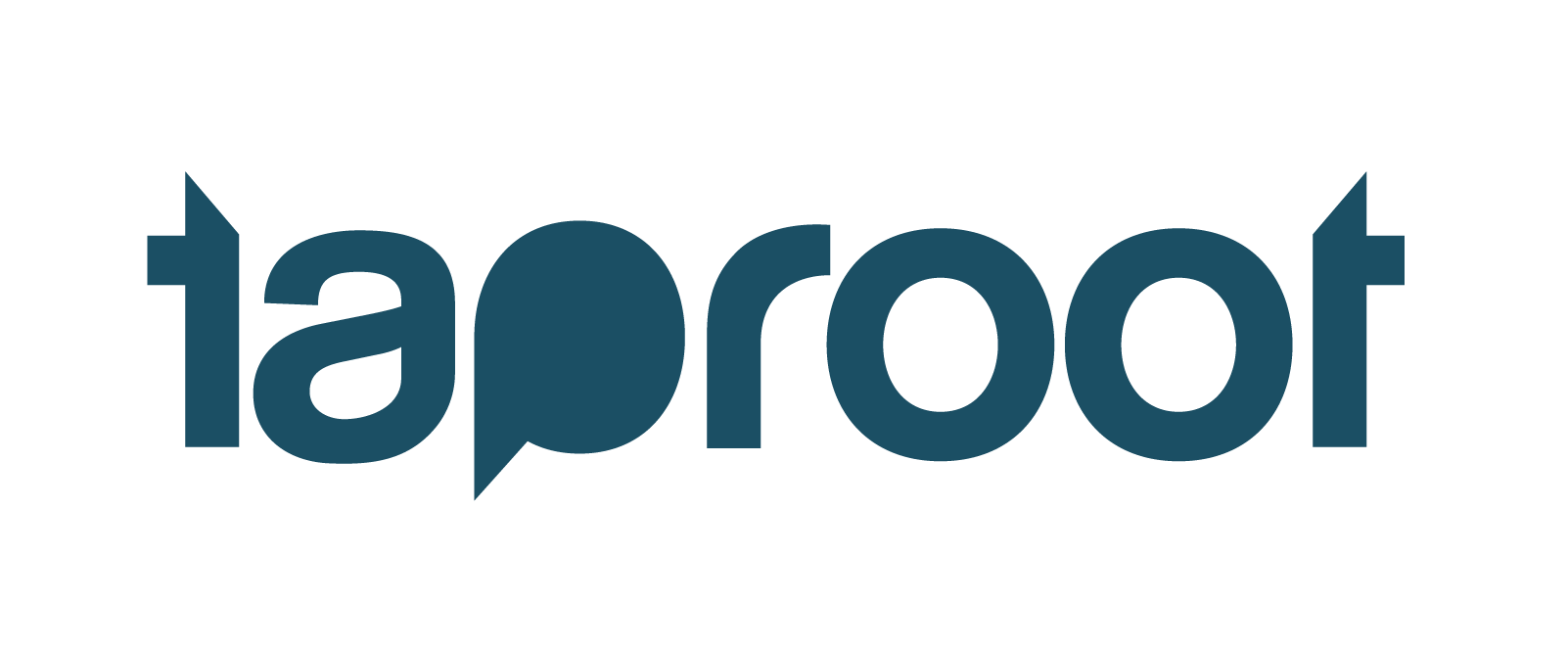Translating Tech Skills to Nonprofits by Engaging Tech Talent
What Taproot is discovering as part of our Town Hall Series
We should have known that when we asked our community to weigh-in and help us shape the future of pro bono service, you would show up.
On February 8 and 9, our pro bono consultants, nonprofit leaders, corporate practitioners, and philanthropic peers joined Taproot for our first ever Town Hall series focused on introducing our 2017 Campaigns and letting our communities weigh-in on outstanding questions around two topics: Cultivating Leaders through Pro Bono Service and Engaging Tech Talent in Pro Bono Service. Audience members shared their professional insights, reflected on their own pro bono experiences, and offered solutions.
For those of you who couldn’t attend, don’t worry! We’ve compiled (mostly) everything you need to know about our Tech Talent Town Hall below.
Engaging Tech Talent in Pro Bono Service
We spent a little time queuing up our conversation on tech pro bono, and we hit on a few fundamental gaps in the conversation:
- The mostly unknown, and yet narrowly focused (engineers!), definition of the term “tech talent.”
- The under-emphasis on nonprofit technology needs related to planning, consultation, or assessment.
- The range of nonprofit technology savviness and general use in the social sector.
- The fact that technology pro bono will never be a one-size solution.
Once these gaps were identified, we jumped into our assumptions.
Assumption #1: We don’t thoroughly understand tech talent and therefore can’t adequately translate it to the social sector. So we asked our audience to define “tech talent.”
What we discovered: Definitions of “tech talent” included functions like “user experience, database creation, or app design;” job titles like “systems administrator or backend developer;” and categories like “those who market tech, build tech, or sell tech.” Unexpectedly participants discussed the need to start from a business problem or organizational aspiration of the nonprofit partner before thinking about talent.
We couldn’t agree more. For many nonprofits, the first step in “tech pro bono” is analysis of the problem. What are you aiming to do? And how (if possible) can technology help you get there? However, this kind of consultative tech pro bono is not commonly asked for by (or offered to) the social sector. Taproot knows this is a huge area of opportunity and one we are currently creating nonprofit resources to help address.
Assumption #2: There are undiscovered or unexplored ways that we can address nonprofit technology challenges with pro bono service. So we asked our audience to think of the problems tech talent solves. What skills do they possess? What do they do?
What we discovered: We often hear that people want to engage their “engineers,” and they want them to “do” something (like code or build). However, the actual building or coding of things hardly came up as a skill. Responses included more general aspects of tech talent skills, like the ability to work quickly, explore new ideas, take risks, or scale with few resources. Others suggested the diagnosis or collaborative element of tech talent, like planning the project or enabling better communication among staff. And finally, people called out that tech talent is connected: they can share best practices from clients, they know available technologies or solutions, and they’re up on current trends.
One person explicitly pointed out that many of these skills don’t necessarily align to a built deliverable that is simply handed over to a nonprofit partner.
Assumption #3: Technology pro bono is different than other areas of expertise and therefore requires new ways of engaging. So we asked our audience to think of how tech pro bono happens and what makes it unique.
What we discovered: The big takeaway here was speed of change. We know technology changes, and it changes fast. Which means so do tech skills and expertise. While this break-neck speed of change may be challenging when it comes to engaging tech talent, it may also help us figure out how to engage them. It may force us to create a pro bono model that starts with the nonprofit’s organizational aspiration and uses pro bono to work backwards into a solution.
This actually wouldn’t be too dissimilar from a common sales approach already used within the technology sector. We may just need to follow industry examples that lead to customer satisfaction and solutions and apply it to the social sector.
Where do we go from here? For Taproot, this conversation brought up the real need to start from a problem statement and consultative process as a first step in tech pro bono service. It also brought up the skills that many tech professionals have that could be beneficial to “translate,” like how to create and take calculated risk at your organization, or how to make progress in time-limited or resource-limited situations. While no offense to our engineer friends and family, we thought there was more to tech talent than coding and development...
We thank all of our stakeholders who both humored and humbled us with their responses and insights at the Town Hall. It’s a new frontier for pro bono service, but one absolutely worth exploring.
Missed the webinar? Watch the recording here.
Want to continue the journey with us? Sign up to receive updates throughout the year.
Taproot Foundation, a national nonprofit, connects nonprofits and social change organizations with passionate, skilled volunteers who share their expertise pro bono. Taproot is creating a world where organizations dedicated to social change have full access—through pro bono service—to the marketing, strategy, HR, and IT resources they need to be most effective. Since 2001, Taproot’s skilled volunteers have served 4,600 social change organizations providing 1.5 million hours of work worth over $160 million in value. Taproot is located in New York City, San Francisco Bay Area, Chicago, Los Angeles, and Washington, D.C. and is leading a network of global pro bono providers in over 30 countries around the world. www.taprootfoundation.org



